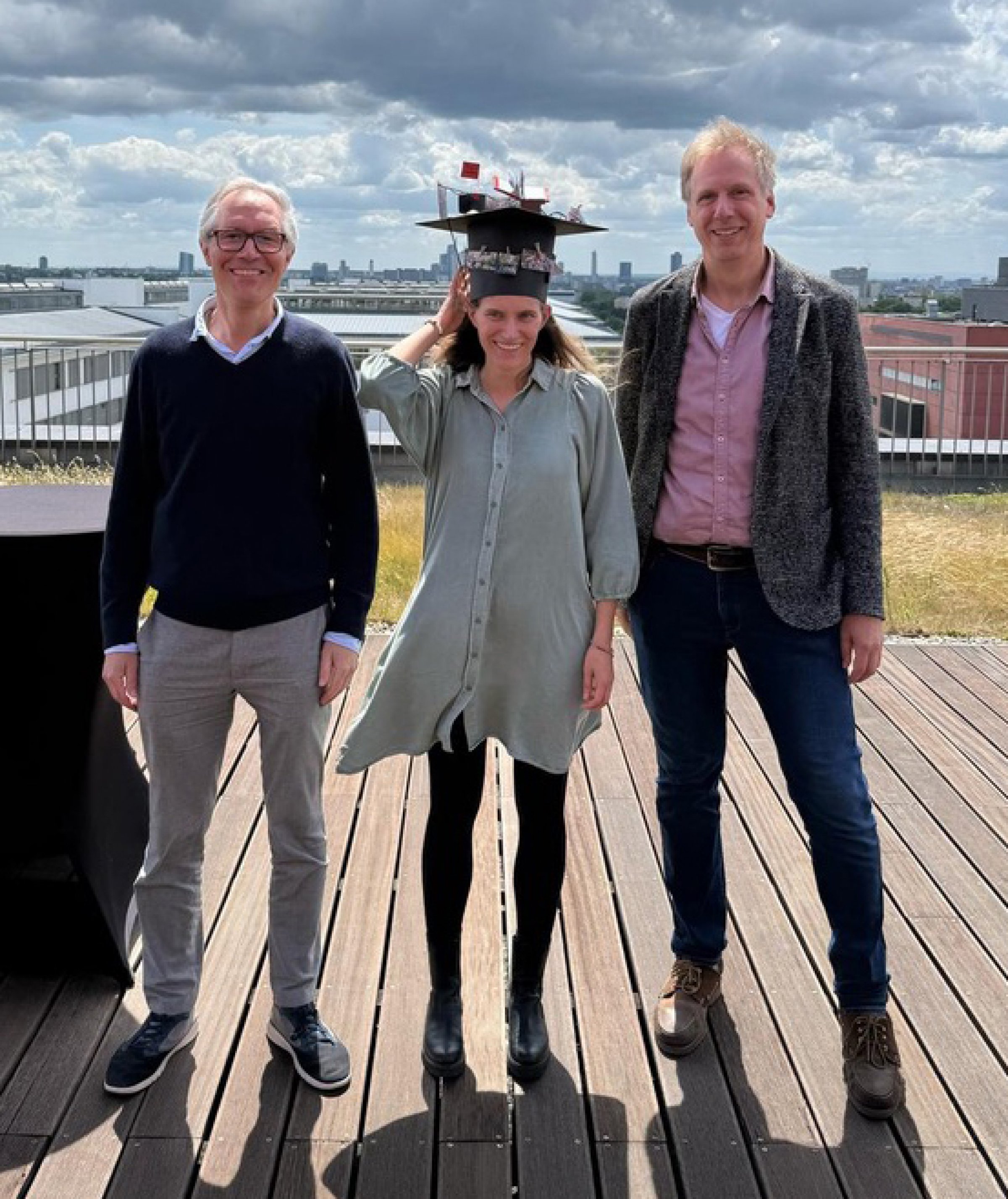May 26, 2025
Bridging brains and machines: Maren Wehrheim`s interdisciplinary doctoral thesis
Defense of the doctoral thesis
Maren Wehrheim from the group of Matthias Kaschube successfully defended her doctoral thesis on May 26th. Between computer science, artificial intelligence (AI), and neuroscience she adressed three key challenges in understanding the interface between biological and artificial systems.
In the first part of her research, Wehrheim developed an innovative method to interpret the internal representations learned by AI models. By quantifying and analysing these learned features, her approach allows researchers to generate neuroscience-relevant hypotheses based on the computational units of artificial networks. Her findings demonstrate that individual model units can correspond to human-interpretable features, and her automated framework offers a systematic, bias-free way to summarize and assess these internal representations.
Expanding her research to the human brain, she collaborated with Christian Fiebach at Goethe University to analyse fMRI data. Her work examined the reliability of brain signal dynamics across task and resting states, revealing that these signals remain reliable under both conditions. Furthermore, her analysis showed that with increasing cognitive load, the brain’s signal variability decreases, while entropy and dimensionality increase—a pattern suggesting that the brain dynamically reconfigures its activity to meet changing cognitive demands. These findings contribute to a deeper understanding of how neural dynamics relate to cognitive performance.
In the final part of her thesis, Wehrheim tackled a practical challenge in neuroscience and biology: denoising low-resolution microscopy data. Using cutting-edge generative models, she demonstrated how such approaches can improve the quality of biological imaging, which is often strongly affected by noise, photobleaching, and phototoxicity. Her work offers promising tools for long-term, minimally invasive observation of biological processes, including in neuroscience.
The defence was followed by a celebration with colleagues, collaborators, and family. Looking ahead, Wehrheim will begin a postdoctoral position in July in the group of Kohitij Karat at York University in Toronto. She will also continue her research as a visiting scientist at the MILA Institute for AI in Montreal, collaborating with Blake Richards.
